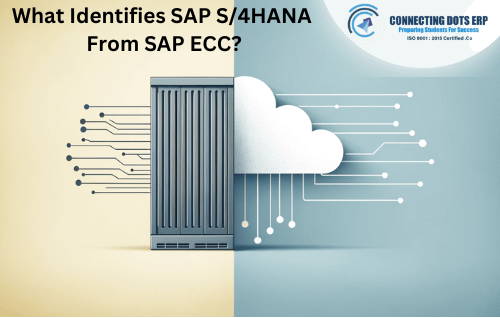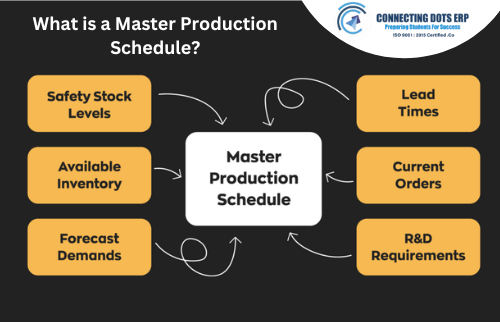Exploring the Key Differences Between SAP S/4HANA and SAP ECC
Are you considering advancing your career with SAP Hana Course in Pune? As you delve into the world of SAP, understanding the differences between SAP S/4HANA and SAP ECC (Enterprise Central Component) is crucial. In this comprehensive guide, we’ll explore the distinctive features of both platforms, helping you make informed decisions about your SAP training journey.
SAP S/4HANA: The Next-Generation ERP Solution
SAP S/4HANA represents a significant leap forward in enterprise resource planning technology. Built on the powerful SAP HANA in-memory database, S/4HANA offers real-time analytics, streamlined processes, and enhanced user experiences. As businesses embrace digital transformation, SAP HANA course in pune provides the agility and innovation needed to thrive in today’s fast-paced world.
Registration Link: https://connectingdotserp.in/
Call Now: 9004002958 / 9004001938
Key Features of SAP S/4HANA:
- Real-Time Analytics: With SAP S/4HANA, businesses can access real-time insights into their operations, enabling faster decision-making and better outcomes. The in-memory computing capabilities of SAP HANA allow for instant data processing, analysis, and reporting.
- Simplified User Experience: S/4HANA features a modern and intuitive user interface, making it easier for employees to navigate and perform their tasks efficiently. The Fiori design principles ensure a consistent and user-friendly experience across devices and platforms.
- Simplified Data Model: S/4HANA adopts a simplified data model, reducing data redundancy and improving data consistency. This streamlined approach enhances performance, reduces storage requirements, and simplifies data management for businesses.
- Advanced Features and Capabilities: SAP S/4HANA introduces advanced features and capabilities, such as predictive analytics, machine learning, and IoT integration. These technologies enable businesses to unlock new insights, automate processes, and drive innovation.
Read Our latest blog: https://connectingdotserp.in/demand-and-career-landscape-for-sap-fico-in-2024-sap-fico-course/
SAP ECC: The Traditional ERP Platform
SAP ECC, also known as SAP ERP Central Component, has been a cornerstone of enterprise resource planning for decades. While ECC continues to power thousands of businesses worldwide, its architecture and functionality differ from the next-generation capabilities offered by S/4HANA.
Key Features of SAP ECC:
- Traditional Database Architecture: Unlike S/4HANA, which leverages the in-memory computing capabilities of SAP HANA, SAP ECC relies on traditional relational databases such as Oracle, SQL Server, or IBM DB2. This architecture may limit real-time processing and analytics capabilities.
- Complex Data Model: SAP ECC features a complex data model with multiple tables and dependencies, which can lead to data redundancy and inefficiencies. Customizations and modifications to the data model require careful planning and may impact system performance.
- Limited Analytics and Reporting: While SAP ECC provides robust analytics and reporting capabilities, they may not match the real-time capabilities of S/4HANA. Batch processing and data extraction may result in delays in accessing critical business insights.
- Migration Challenges: For businesses considering a transition to S/4HANA, migrating from SAP ECC can pose significant challenges. Data migration, system customization, and business process reengineering are essential aspects of a successful migration project.
Registration Link: https://connectingdotserp.in/
Call Now: 9004002958 / 9004001938
Choosing the Right SAP Training in Pune
Now that you understand the differences between SAP S/4HANA and SAP ECC, you can make informed decisions about your SAP training in Pune. Whether you’re interested in SAP classes in Pune, SAP HR courses, or SAP Institute in Pune, it’s essential to choose a training institute that offers comprehensive courses tailored to your needs.
Key Considerations When Choosing a SAP Training Institute in Pune:
- Course Content and Curriculum: Look for SAP training institutes that offer up-to-date and comprehensive course content covering both SAP S/4HANA and SAP ECC. Ensure that the curriculum includes hands-on exercises, case studies, and real-world scenarios to enhance learning outcomes.
- Experienced Instructors: Seek out training institutes with experienced instructors who have industry expertise and practical knowledge of SAP implementations. The quality of instruction can significantly impact your learning experience and skill development.
- Flexible Learning Options: Choose a SAP training institute in Pune that offers flexible learning options, such as classroom-based training, online courses, or blended learning programs. Flexibility in scheduling and delivery modes can accommodate your personal and professional commitments.
- Certification and Placement Support: Look for training institutes that offer SAP certification preparation and placement assistance services. SAP certifications can enhance your credibility and marketability as an SAP professional, while placement support can help you secure rewarding career opportunities.
Registration Link: https://connectingdotserp.in/
Call Now: 9004002958 / 9004001938
Conclusion:
Whether you’re interested in SAP S/4HANA, SAP ECC, or any other SAP module, investing in SAP training in Pune is a strategic move towards advancing your career in enterprise resource planning. By understanding the differences between SAP S/4HANA and SAP ECC and choosing the right training institute, you can embark on a successful SAP journey and unlock new opportunities for professional growth and development.






